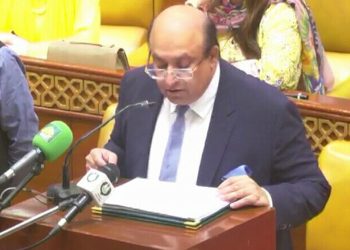In a bid to tighten cybercrime regulations, the federal government is planning significant amendments to the Prevention of Electronic Crimes Act (PECA) 2016. The proposed changes include imposing stricter penalties and establishing a new authority to oversee social media activities.
The draft of the proposed Prevention of Electronic Crimes (Amendment) Act, 2024, outlines the creation of a Digital Rights Protection Authority (DRPA), which would have the power to block or remove online content deemed harmful to public safety, state institutions, or individuals.
Under these amendments, individuals spreading fake news, inciting unrest, or creating fear on online platforms could face severe consequences. The proposed penalties include up to five years of imprisonment, a fine of Rs. one million, or both.
The primary objective of these measures is to curb misinformation and maintain peace. The amendments specifically target fake news that attacks law enforcement agencies, state institutions or promotes violence and hatred.
The DRPA will replace the Pakistan Telecommunication Authority (PTA) in regulating online content. The new body will also handle cybersecurity issues and ensure the protection of digital rights. The authority will be led by a chairperson and comprise six members, including three government representatives. It will focus on promoting digital ethics, investigating complaints, and regulating social media content under the revised law.
The DRPA will have the authority to block or remove unlawful content, impose penalties on individuals and platforms sharing harmful material, and require social media platforms to comply with local laws. Additionally, the authority will set up offices in Pakistan to further streamline the regulation process.
Content that will be considered unlawful includes blasphemy, incitement to violence, religious or ethnic hatred, false accusations, pornography, and threats.
These amendments, initiated by the ruling PML-N government after the February general elections, were drafted by a committee led by Interior Minister Rana Sanaullah in May. However, the process has faced limited stakeholder engagement.
The amendments aim to address the evolving challenges of cybercrime, focusing on public safety, digital rights, and increased transparency in online governance.


































